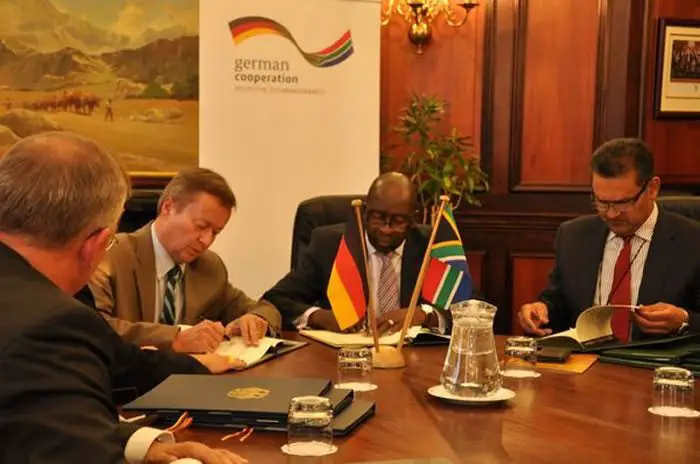South Africa has received US$559m from Germany. The development agreements open the way for continued support in the areas of energy and climate change, among other sectors. The development-cooperation commitment consolidates more than two decades of ongoing financial and technical support that collectively stands at over US$1.3bn.
The latest commitment comprised five separate agreements that were signed on by South African Finance Minister Nhlanhla Nene and German Ambassador Dr Horst Freitag.
“Germany continues to support South Africa in meeting its mid- and long-term challenges. With these new funds, we underline our will to stand by our partners in a sustainable and predictable way. South Africa is one of our most important global development partners. Our development cooperation is an integral part of our broader cooperation in the political, economic, social and cultural spheres, bearing testimony to a successful partnership between countries of the Northern and Southern hemisphere in a changing world”, Ambassador Freitag said.
Nene welcomed Germany’s renewed support, which he said was aligned with government’s National Development Plan priorities.
South Africa has established and secured funding for the South African Renewable Energy Technology Centre (SARETEC). With support from Germany, SARETEC will provide renewable energy and related industry training as of 2015. It will make a major contribution to training the 5,000 qualified wind technicians who will be required by 2030. The establishment of the centre is further supported by a public-private partnerships (PPP) concluded between SAGEN, the Cape Peninsular University of Technology and the German wind turbine manufacturer NORDEX, under which NORDEX will provide essential training equipment.
South Africa is Germany’s largest trading partner in Africa and the two countries share a rich, vibrant and comprehensive partnership and enjoy a special bond of friendship that embraces the political, economic, cultural and social spheres.
This cooperation is primarily implemented by the German International Cooperation (GIZ) and the German Development Bank (KfW).

